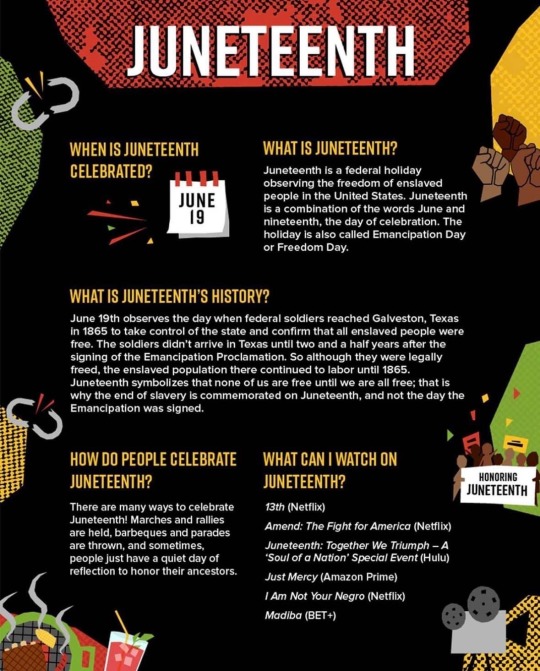#white history
Explore tagged Tumblr posts
Text

And they are still deadbeats 🤷🏿
#facts over feelings#black people#black#black history#black tumblr#blacktumblr#black conscious#african history#white men#white history#slavery#deadbeat dad#truth#history
120 notes
·
View notes
Text

🤔
#blackmen#melaninpoppin#blackcouples#blackwomen#blacklove#blackfamily#blackfathers#melaninrich#marriedandblack#blackexcellence#black history#white history
229 notes
·
View notes
Text
On June 26, 1844, the legislative committee of the territory then known as “Oregon Country” passed the first of a series of “Black exclusion” laws. The law dictated that free African Americans were prohibited from moving into Oregon Country and those who violated the ban could be whipped “not less than twenty nor more than thirty-nine stripes."
That December, the law was amended to substitute forced labor for whipping. It specified that African Americans who stayed within Oregon would be hired at public auction and that the “hirer” would be responsible for removing the “hiree” out of the territory after the prescribed period of forced service was rendered. This law was enforced even though slavery and involuntary servitude were illegal in Oregon Country.
The preamble to a later exclusion law, passed in 1849, explained legislators’ beliefs that “it would be highly dangerous to allow free Negroes and mulattoes to reside in the Territory, or to intermix with Indians, instilling ... feelings of hostility toward the white race.”
The Oregon Constitution of 1857 included racial exclusion provisions against African Americans and Asian Americans. The document declared that African Americans outside of Oregon were not permitted to “come, reside, or be within” the state; prohibited African Americans from owning property or performing contracts; and prescribed punishment for those who employed, “harbor[ed],” or otherwise helped African Americans.
Between 1840 and 1860, in the midst of this exclusion and discrimination, African Americans never constituted more than 1% of the population in the American Pacific Northwest. Oregon, which joined the Union as a "free state" on February 14, 1859, stands as a clear illustration that racial discrimination and oppression against Black people was also widespread in jurisdictions where slavery was illegal. The 2020 U.S. Census reported that only 3.2% of Oregon residents were Black.
#history#white history#us history#Black history#am yisrael chai#jumblr#republicans#democrats#slavery#Oregon Constitution of 1857#Oregon Constitution#Oregon
57 notes
·
View notes
Text
6 notes
·
View notes
Text
Vkyyyy 😍😍😍
#100 days of productivity#nature#nct 127#nct dream#needlework#neil gaiman#niall horan#nike#newjeans#nasa#epl#that that type of ish that would lead to an episode of snapped or deadly women#asks open#sunday#white history#tiktok#twitter#xxxx
26 notes
·
View notes
Quote
“The essential characteristic of a nation is that all its individuals must have many things in common,” wrote the 19th-century French scholar Ernest Renan. “And must have forgotten many things as well.” But is this really mere forgetfulness? Or something more deliberate? This is not the accidental, absent-minded misplacement of a fact. The transatlantic trade in human beings for profit doesn’t slip one’s mind, momentarily, like an elusive name or date. A nation does not forget centuries of slavery as a person might forget an umbrella. The nation sets about the task with great prejudice. After all, there are a good many things that predated this particular racial journey, from 1066 to the Wars of the Roses, that we do remember well.
Gary Younge in The Guardian. Lest We Remember: How Britain Buried Its History of Slavery
Slavery is a central and indisputable fact of the nation’s past. But our failure to remember what really happened is more than mere forgetfulness
14 notes
·
View notes
Text
instagram
#blackmen#melaninpoppin#blackcouples#blackwomen#blacklove#blackfamily#blackfathers#melaninrich#marriedandblack#blackexcellence#white history#black history#europe#Instagram
6 notes
·
View notes
Text
The espousal of the doctrine of Negro inferiority by the South was primarily because of economic motives and the inter-connected political urge necessary to support slave industry; but to the watching world it sounded like the carefully thought out result of experience and reason; and because of this it was singularly disastrous for modern civilization in science and religion, in art and government, as well as in industry. The South could say that the Negro, even when brought into modern civilization, could not be civilized, and that, therefore, he and the other colored peoples of the world were so far inferior to the whites that the white world had a right to rule mankind for their own selfish interests. Never in modern times has a large section of a nation so used its combined energies to the degradation of mankind. The hurt to the Negro in this era was not only his treatment in slavery; it was the wound dealt to his reputation as a human being. Nothing was left; nothing was sacred; and while the best and more cultivated and more humane of the planters did not themselves always repeat the calumny, they stood by, consenting by silence, while blatherskites said things about Negroes too cruelly untrue to be the word of civilized men. Not only then in the forties and fifties did the word Negro lose its capital letter, but African history became the tale of degraded animals and sub-human savages, where no vestige of human culture found foothold.
W. E. B. Du Bois, Black Reconstruction in America
#black lives matter#white history#black history#critical race theory#black reconstruction in america#web du bois#w.e.b. du bois#du bois#1935#du bois 1935
2 notes
·
View notes
Text
Why did the ADL initially defend Elon Musk after he made a Nazi salute, only to later criticize him for making Nazi-related puns?
The ADL swiftly condemned Kanye West for his anti-Semitic comments, yet Elon Musk, despite his history of anti-Semitic and bigoted behavior, has not faced the same level of scrutiny.
The ADL should apply its condemnation consistently, as seen in its swift criticism of Kanye West and Kyrie Irving, while handling Elon Musk differently.
#history#white history#us history#republicans#am yisrael chai#jumblr#black history#democrats#israel#palestine#elon musk#donald trump#trump#kanye west#kyrie irving#ADL#anti defamation league#toady in white history#today in black history
24 notes
·
View notes
Text
They will burn this shit down before they allow us to shine. White ppl are weak and fragile. Yep I said it
#black tumblr#black stories#black love#black beauty#black woman is god#black men#black history#black musicians#black art#beauty#white people shit
10K notes
·
View notes
Text
Also, remember Juneteenth gave enslaved people the news that they were free, but it did not stop them from being forced to work for cheap labor in some states. Juneteenth ushered in the Black Codes and Jim Crow. Black Codes (new laws and ordinances) were passed to restrict Black people's rights. Some Black Codes forced Black people to continue to work on plantations or jobs deemed beneath white people.

Happy Juneteenth Tumblr✊🏿✊🏾✊🏽✊🏼
21K notes
·
View notes
Text
I started drawing the Ever After High girls in random historical fashion eras… why? I have no idea

Raven Queen in 1890s, Apple White in Italian Renaissance.

Briar Beauty in 1920s, Madeline Hatter in 1880s
No particularly reason for the eras, just the vibe I get from the characters and their designs!
#ever after high#ever after high fanart#raven queen#apple white#briar beauty#madeline hatter#victorian fashion#1920s fashion#renaissance fashion#historical fashion#fashion history#eah#eah fanart#eah redesign#eah art#character designs
14K notes
·
View notes
Text
MAGA: Make Apartheid Great Again
#maga#history#white history#us history#republicans#am yisrael chai#jumblr#black history#democrats#israel#palestine#donald trump#elon musk#mitch mcconnell#gop#american apartheid#israeli apartheid#apartheid#toady in white history#today in black history
20 notes
·
View notes
Text






..as autumn bleeds into winter...
...Goodbye November...
@luciferslilith7
#aesthetic#dark academia#chaotic academia#classic academia#classic literature#light academia#the secret history#donna tartt#the goldfinch#gloomy coquette#edgar allan poe#escapism#franz kafka#fyodor dostoevsky#white nights#dark academia moodboard#autumn aesthetic#late november#winter academia#henry winter#if we were villains#the dead poets society#dark romantica#books and poetry#books and coffee#Sylvia Plath#hans christian andersen#the picture of dorian gray#brown aesthetic#black & brown
5K notes
·
View notes
Photo
important to remember this isnt an allegory, this was 1960 those specific white people are still alive and voting for trump

Same assholes, different year.
4K notes
·
View notes
Text

surprise it's yuri!!!in 2024
#my art#yuri on ice#yuri!!! on ice#yoi#fanart#katsuki yuuri#victor nikiforov#victuuri#yoi fanart#this was the secret 4th thing that lost the poll jdsfgsdfjj#id been thinking about doing a tribute since getting that one ask but i didn't anticipate how Into it i would get once i started#the way i flew through this piece .. just over 1 day??? insane#yuri is /that/ ingrained in my muscle memory#I was looking at refs and ?? id forgotten how wild this show was#we just got all of that?? a pole dance a proposal a kiss a pair skate....and it was ALL canon? incredible#AND YEAH UNPROMPTED HISTORY MAKER PLAYS IN MY YT MIX#dean fujioka jumpscare#also looking back at my old yoi pieces was so wild. that ws really 8 years ago huh.#little bit of an ego boost looking at how far ive come#but also im just grateful idk sry 2 b sappy on main#i hope 16 year old me is happy that i did this bc im happy i did this#edit bc i forgot a bunch of white outline i am a fraud
11K notes
·
View notes